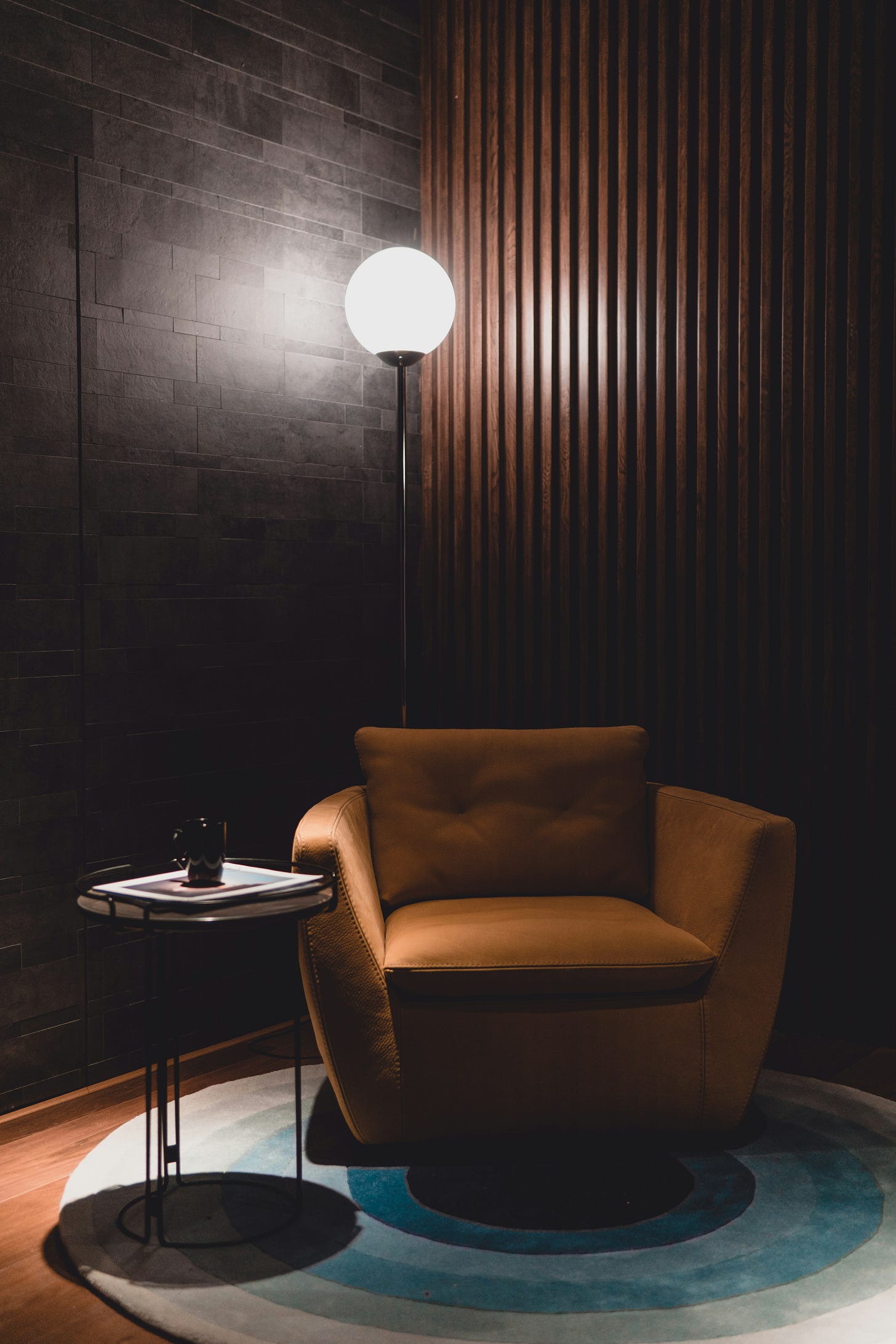
Merge Exemption Form
I blink, select.
A woman appears, her smooth features perfect, uncanny.
Exemption for whom?
“My father.”
Male, 69, retired VR engineer. Diagnosis: middle-stage Alzheimer’s disease.
“Correct.”
Rationale?
“Family importance.”
My monthly statistics scroll before my eyes:
Productivity: 30% decrease.
Personal messages:
“Dad took the keys and wandered off again.”
“almost stuck a fork in the toaster”
“distracting”
My stomach churns. Salty water touches my lips, drips off my chin, and I close my eyes to stop the tears. “I can’t lose him.”
Permission denied.
Due to family burden and productivity deficit, the subject’s Merge date has been accelerated.
No.
You can see the subject every day in the VR Merge Center.
With Merge technology, you never have to say goodb–
At my frenzied tapping, the projected lenses vanish into the tiny device behind my ear, tucked under layers of skin.
I stumble into the next room and grasp my father’s armchair. Hands shaking, skin cold with dread, I turn him around to face me.
Eyes closed, skin still warm, pulse -
Pulse?
Nothing.
He is still, still as death, a pinprick of blood behind his ear.
Thank you so much for reading!
Because microfiction is so quick to read, I often include a short discussion about where my mind was when I wrote the piece or what crazy circumstances occurred during the writing process, and I want to share a little bit about this story’s origins.
From the time I was eight years old until I left home to go to college, my mom was a Eucharistic minister at our little Catholic parish, and multiple times each month she would bring communion to the homebound (For those who aren’t familiar, Catholics believe that Jesus is truly present in the Eucharist, so many churches have either a priest or volunteers bring communion to parishioners who can’t attend Mass due to illness or injury). I almost always went with her, and during those ten years, we met and talked with and befriended a whole host of different people who were ill, elderly, or dying. In some ways, it was pretty heavy stuff for an eight-year-old, but it was one of the most formative experiences of my life and one for which I’m very grateful.
We became good friends with a woman who couldn’t walk but who organized the parish-wide prayer chain from the armchair in her living room.
One man we visited for several years had a skin condition that left him with huge, oozing wounds on his face. Although at first it made my skin crawl to look at him, he was incredibly welcoming to us and so gentle with his wife, who was even more frail than he was. We absolutely fell in love with him and his tiny wife and their bright, happy, hospitable home.
On multiple occasions, we prayed with people who were on their deathbeds.
Some people were awake and alert and friendly; others were cranky or even comatose. It was a wild lesson in suffering and mortality, but those experiences have left me with a profound conviction regarding the dignity of the sick and elderly. The grace I witnessed among people who were quietly enduring the trials of illness or old age, and among people who were just a few steps away from death, has sunk deep into the crevices of my mind and heart. This microfiction is a tragic, dystopian take on this theme, but the same motifs pop up across the variety of genres I write. I hope that my stories, even when they don’t explicitly address death or suffering, can communicate a portion of that experience and worldview.
Thank you again for taking the time to read this!




Oh, this is chilling. Powerfully written, and so chilling. The horror of euthanasia as default (setting aside the ethics of whether even voluntary euthanasia is a good thing!)... It reminds me (though it is thankfully far removed from that) of a change in the law around organ donation in Scotland a few years back. Being an organ donor is now opt-out rather than opt-in. I understand the pragmatic reasons for this change -- a way to address the shortage of donor organs -- but there's an argument that this is ethically wrong because it's essentially saying that the state owns your body.
That's a bit of a ramble, but I love it when a short story makes you think!
A drop in productivity. Gosh, this is chilling because it's not far from reality. Great work, Bridget. It must have been an eye opener praying with the homebound. To go on that journey so young is inspiring. It sounds like it gave you a lot.